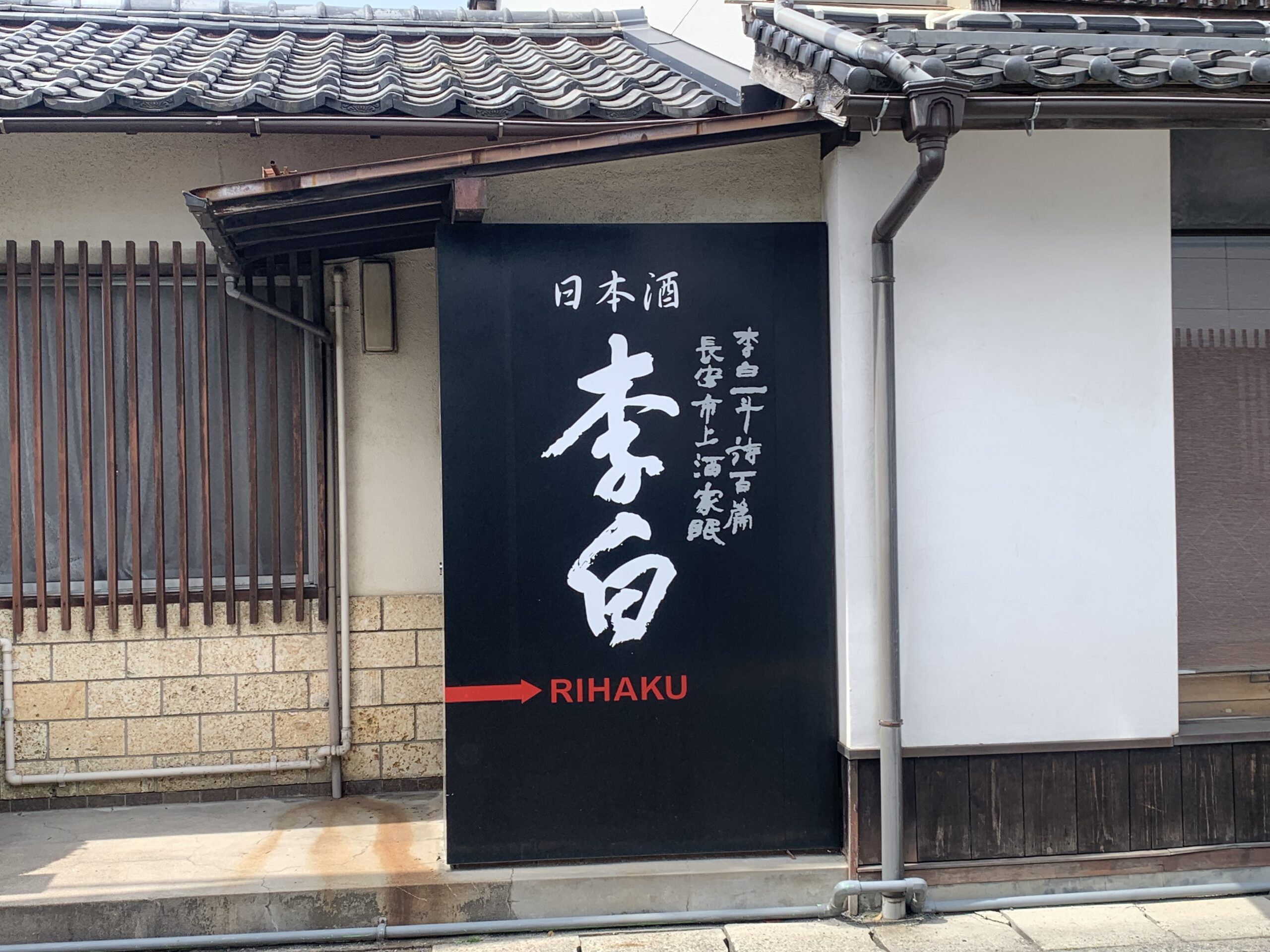Discover “Poetry in a Cup” by Rihaku Shuzo in Matsue, Shimane — premium sake including Junmai Daiginjo 45% Yamada Nishiki and Kuchi Yamata no Orochi. Buy online or at the historic flagship store
In Japan’s sake world, few names carry the weight and elegance of Rihaku Shuzo — a brewery that stands at the intersection of premium craftsmanship, historical prestige, and deep local identity. Located in Shimane Prefecture, regarded as the birthplace of sake, Rihaku reflects the pride of a land where brewing has been intertwined with myth, ritual, and daily life for over a millennium. Founded in 1882, it has grown from a regional brewery into one of Shimane’s most celebrated sake makers, admired for its meticulous brewing methods and its role in preserving the region’s cultural heritage.
In the castle town of Matsue, where myths drift like morning mist over Lake Shinji, sake is more than a drink — it is a living legend. In Japan’s earliest chronicle, the Kojiki, a heroic god subdued the eight-headed dragon Yamata no Orochi with sake brewed here. Since then, every drop has been cherished as both a pleasure and a sacred bridge between people and the divine.
In the heart of Matsue, the capital of Shimane, this ancient spirit lives on. On 12 April, Rihaku Shuzo (RIHAKU Sake Brewing Company) held its annual kura biraki—a traditional spring opening of the sake storehouse—to welcome guests from near and far. Visitors enjoyed sake tastings, regional cuisine, and the stirring beat of taiko drums performed by the Ishibashi San-chome Do troupe in a lively, festive atmosphere.
Set in the historic district of Ishibashi-cho, the brewery enjoys abundant pure water drawn from local wells that have never run dry. Many of these old wells remain, and their pristine quality makes them suitable for sake brewing and crafting other regional specialities such as soy sauce, bean curd, and buckwheat noodles. The charming tiled roofs, latticed windows, and striking white-walled Rihaku Shuzo’s storehouses evoke a sense of enduring tradition and lend a quiet dignity.
Founded in 1882, Rihaku Shuzo is steeped in heritage and remains a respected name in Shimane’s sake-making legacy.
![]()
![]()
![]()
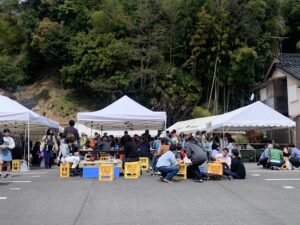
‘I was hoping this kura biraki would encourage more people to appreciate our sake and realise that the brewery has always been a part of the community, ’ said President Yuichiro Tanaka.
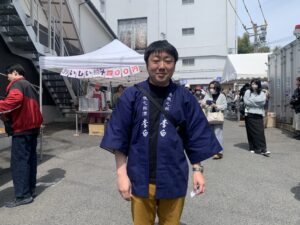
(Yuuichiro Tanaka: The President of Rihaku Shuzo)
Junmai Daiginjo 45% Yamada Nishiki
Crafted from the finest Yamadanishiki rice polished down to 45%, Rihaku’s Junmai Daiginjo embodies both precision and artistry. The sake opens with a delicate, mellow fragrance that hints at white flowers and freshly steamed rice. On the palate, it offers a refined dryness layered with elegant umami, leading to a clean, lingering finish. More than a premium drink, this expression stands as a faithful embodiment of Japan’s sake tradition — a testament to Shimane’s pride as the birthplace of sake and Rihaku’s role in carrying that legacy forward.
More than a premium drink, this expression stands as a faithful embodiment of Japan’s sake tradition — a testament to Shimane’s pride as the birthplace of sake and Rihaku’s role in carrying that legacy forward.
Junmai Pouch Series
Crafted from nothing but rice, water, and koji mould, this junmai sake is presented in compact, lightweight pouches — a perfect companion for camping trips, train journeys, or casual evenings at home. Its smooth profile and gentle acidity appeal to both newcomers and seasoned sake drinkers.
Special Junmai Dry Kuchi Yamata no Orochi
A bold, dry sake inspired by the legendary eight-headed dragon of Izumo mythology. With a crisp attack and a savoury depth that lingers on the palate, it pairs beautifully with grilled seafood and robust regional dishes.
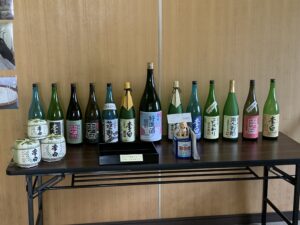
The brewery’s name pays tribute to Rihaku (known originally from China as Li Bai), the legendary Chinese poet of the Tang dynasty, famous for composing exquisite verses while drinking prodigious amounts of sake. The name was bestowed by Baron Reijiro Wakatsuki, a former Prime Minister of Japan and Matsue native, who also designed the distinctive Rihaku logo, which is still used today.
‘All Chinese people know the name Rihaku, and I think it’s a very tasteful name for a sake brewery, ’ says Chenglu Peng, a coordinator for International Relations at Matsue City Hall from China.
Evidence of this can be seen on the T-shirts and jumpers worn by employees, which are inscribed with the phrase “The poet Rihaku would drink a big bottle of sake and write a hundred poems in both English translation and the original Chinese text.” This homage to Rihaku adds a unique and personal touch to the brewery’s identity, blending its rich history with contemporary culture.
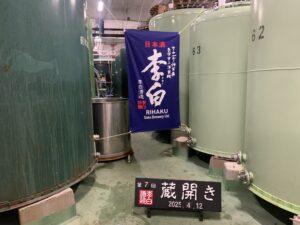
Today, approximately 40% of Rihaku’s production is exported to 15 foreign countries, including the United States, China, Hong Kong, Australia, and Thailand. Its reputation for excellence has travelled far—some of its sake was even brought to the 1930 London Naval Conference and delivered to a Japanese base in Antarctica.
In fact, Japan’s sake exports continued growing in 2024, reaching new heights in value and volume. According to the Japan Sake and Shochu Makers Association, Japan’s total sake export value in 2024 reached ¥43.47 billion (approximately USD 290 million), marking a 5.8% increase year-on-year (105.8% compared to the previous year). Export volume totalled 31,056 KL, representing a 6.4% increase (106.4% year-on-year), based on the Ministry of Finance Trade Statistics compiled by the association.
‘Expanding overseas consumption is important, but moving forward, I want more young people in Japan to enjoy sake,’ said Tanaka.
With one dō of sake, the poet Rihaku could write a hundred poems. Today, each bottle from Rihaku Shuzo carries that same spirit — a union of craft, history, and poetry, waiting to be poured into your cup.
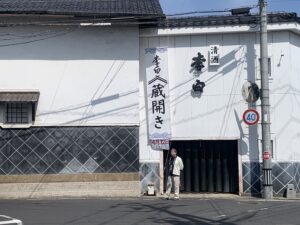
ーWords by Takashi Saito
Where to Buy
Taste Rihaku’s sake at its flagship store in Matsue’s historic Ishibashi district, or order directly from the official online shop — starting at ¥1,800 per half-bottle.Perfect for gifts, travel souvenirs, or enjoying at home.
🚉 Visiting Rihaku Shuzo
There are several travel options for visiting the brewery:
- By air: Take a two-hour flight with JAL from Haneda to Izumo Airport, then a 35-minute bus to JR Matsue Station. The return fare is roughly ¥70,000.
- By sleeper train: The Sunrise Izumo offers a scenic 12-hour overnight journey for around ¥55,000 return.
- By Shinkansen: Travel via Okayama and transfer to the Limited Express Yakumo. The journey takes about six hours and costs around ¥50,000 with a Japan Rail Pass.
- By bus: From JR Matsue Station, catch a local bus bound for Daigaku Kawatsu and alight at Kitahori or Ishibashi Sanchome.
335 Ishibashi-cho, Matsue, Shimane 690-0881
Experience “Poetry in a Cup” at Rihaku Shuzo in Matsue, Shimane. Enjoy premium sake, including Junmai Daiginjo 45% Yamada Nishiki and Kuchi Yamata no Orochi. Shop online or visit our historic flagship store. Experience “Poetry in a Cup” at Rihaku Shuzo in Matsue, Shimane. Enjoy premium sake, including Junmai Daiginjo 45% Yamada Nishiki and Kuchi Yamata no Orochi. Shop online or visit our historic flagship store.

